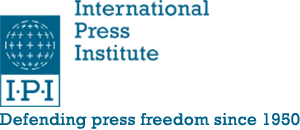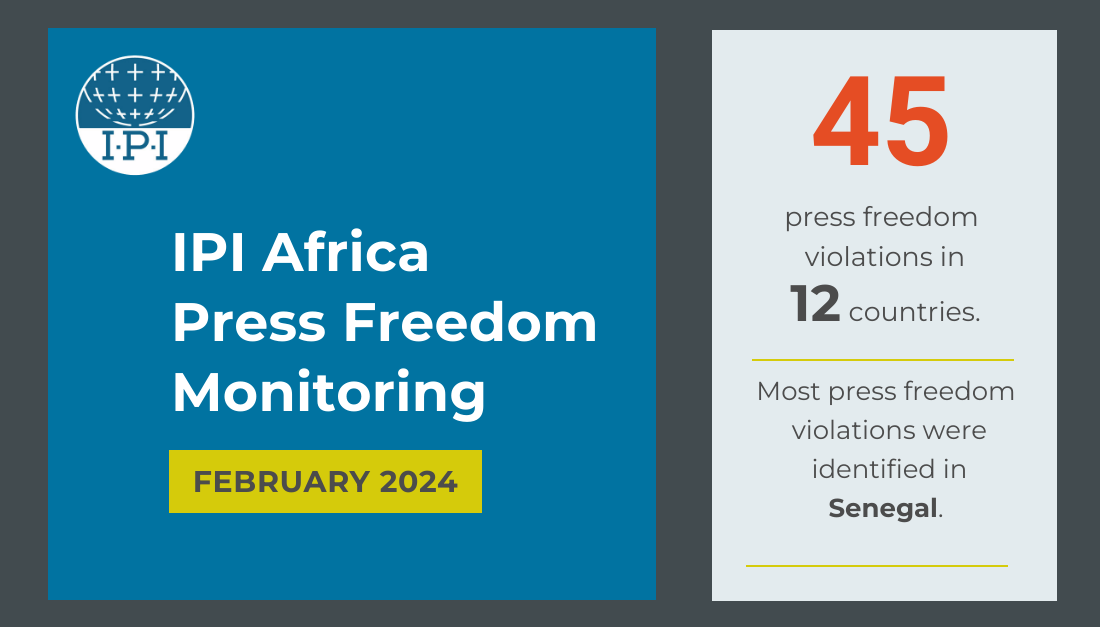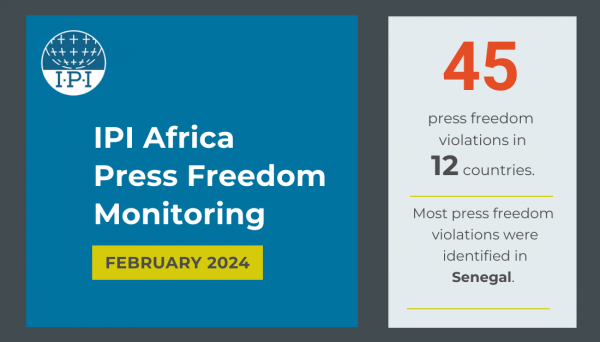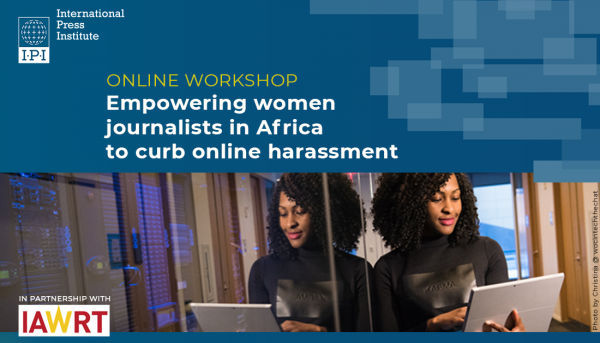In February 2024, IPI documented 45 threats to press freedom in 12 countries in sub-Saharan Africa. Physical and verbal attacks, arrests, detentions, and internet and or mobile network disruptions were the most frequently identified incidents. Senegal recorded the highest number of cases, with at least 18 incidents documented. State actors remain the main perpetrators, responsible for 72 percent of the recorded attacks on journalists and media outlets.
Following the postponement of the February 25 general elections in Senegal, public protests erupted, and several journalists covering the demonstrations were physically or verbally attacked or detained by security forces. For instance, journalists Khadija Ndate and Sokhna Ndack Mbacke of the online news platform ITV and television broadcaster Agora, respectively, were attacked and detained by security forces on February 4 while reporting live on the protests. They were later released without charges. On February 5, 2024, authorities in Senegal permanently withdrew the broadcasting license of Walf TV, a privately owned television critical of the government. However, following widespread condemnation of the move, on February 11, the media outlet resumed broadcasting.
Elsewhere in West Africa, on February 6, Nigerian journalists Adisa-Jaji Azeew and Salifu Ayatullahi of the online news outlet Informant247 were detained by the Kwara Command Police Western Nigeria and charged with conspiracy, cyberstalking, and defamation. Their arrest followed a complaint by the rector of Kwara State Polytechnic over two articles, published last November and this February, reporting that the rector had made false claims about the financial status of the institution and commissioned shoddy project work. Two further journalist colleagues, Salihu Shola Taofeek and Abdulrahman Taye Damilola were also charged despite not having been notified by the police.
In Kenya, on February 8, three journalists, Musembi Nzengu, Ida Ngile, and Mercy Mueni, working for The Star newspaper, Mumo TV, and Mbaitu FM Radio were assaulted and arrested while covering the arrival of a contested new secondary school Principal by students’ parents in Kitui County. The Star Newspaper’s Nzengu was brutalized by a police officer and sustained injuries. All three journalists were arrested and detained before being released without charges.
Internet shutdowns
In an increasingly common occurrence, authorities in Senegal shut down the internet twice over the past month, on February 4 and February 13. The shutdown was in response to the aforementioned public protests against the postponement of the election. In Chad, the authorities also blocked access to the internet following violent clashes between members of the opposition Socialist Party Without Borders (PSF) and state security forces in the capital N’djamena.
Positive developments noted
Several positive developments were also noted in February. For example, stemming from mounting pressure, unity, and a show of solidarity behind jailed journalist Sekou Jamal Pendessa in Guinea, the authorities released him on February 28. In Ghana, the journalistic community imposed a media blackout on the country’s minister for fisheries, Mavis Hawa Koomson, following the assault of fellow journalist David Kobenna by assailants wearing T-shirts with her name on it. The blackout led the minister to engage the media and solve the issue – which was seen as a sign that the abuse of journalists would not remain without consequences. On February 9, the authorities in Burundi adopted a bill abolishing prison sentences for journalists following complaints of ethical violations.



